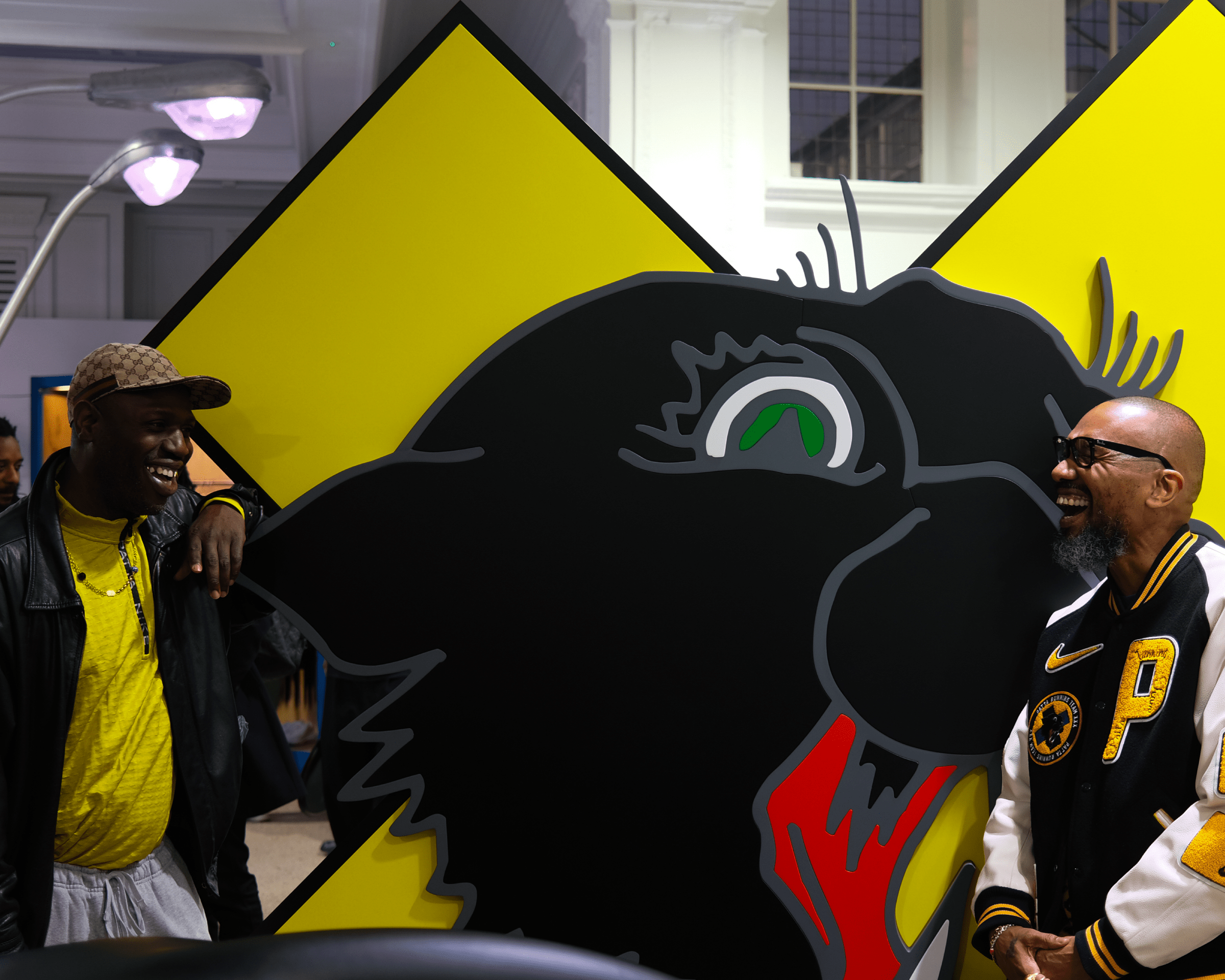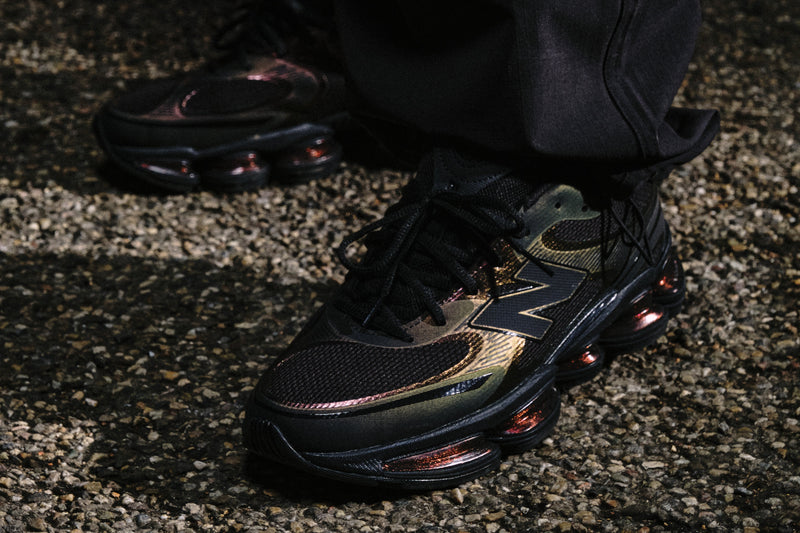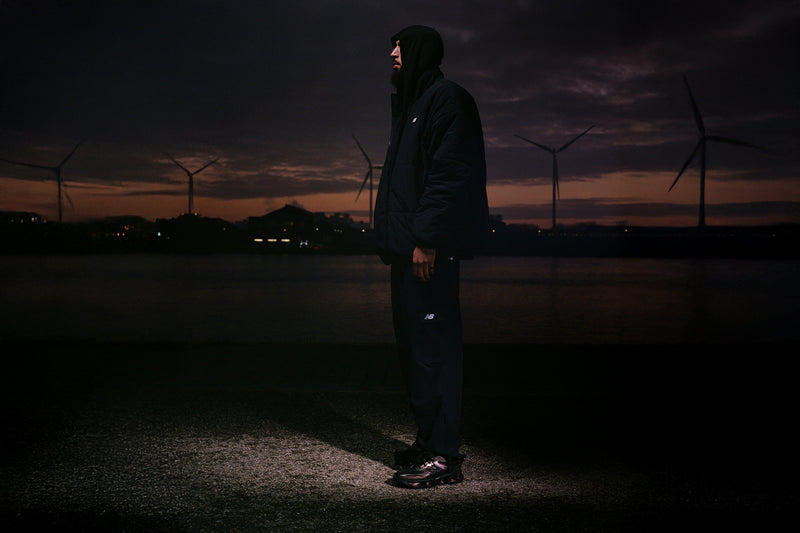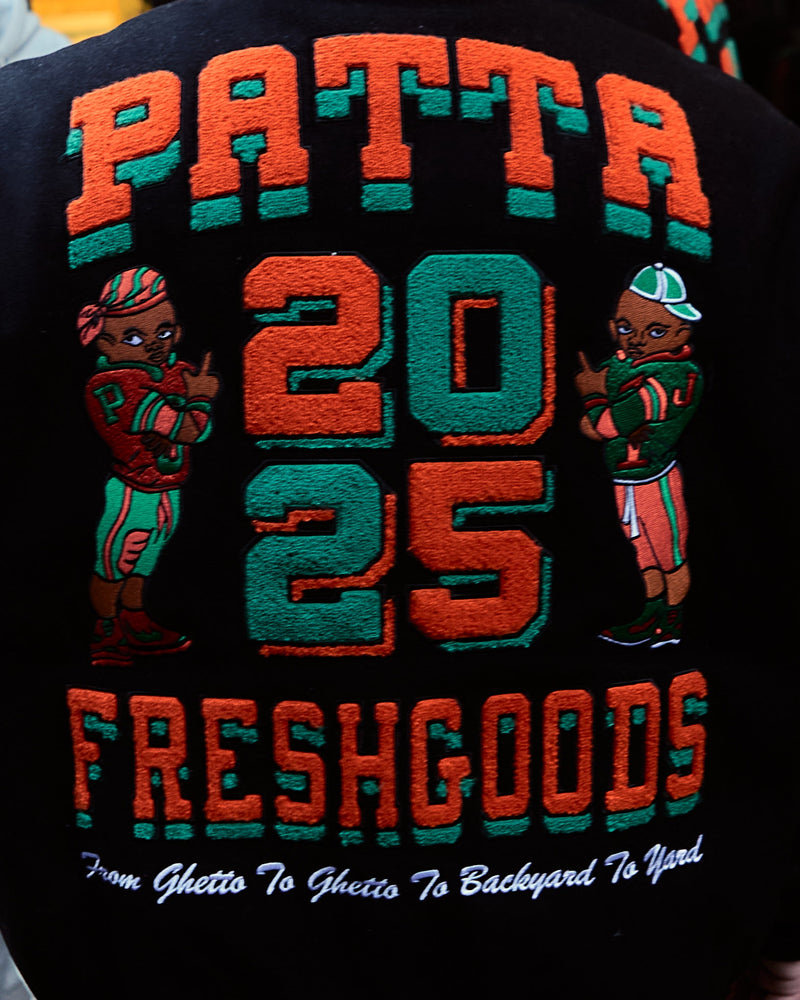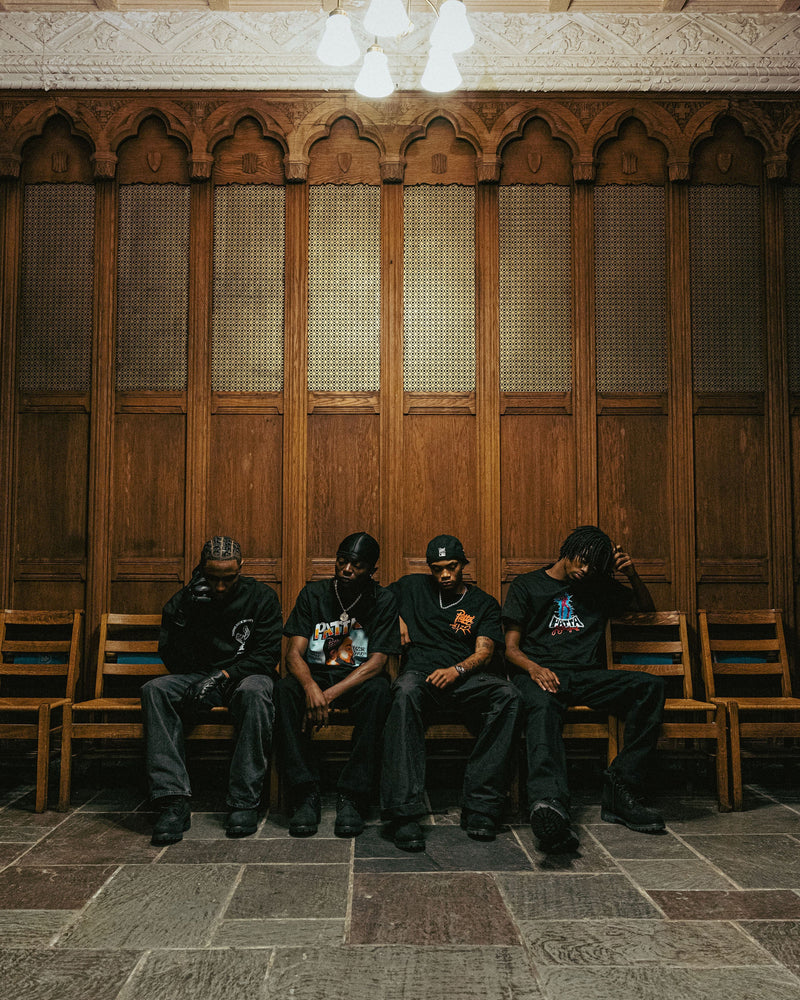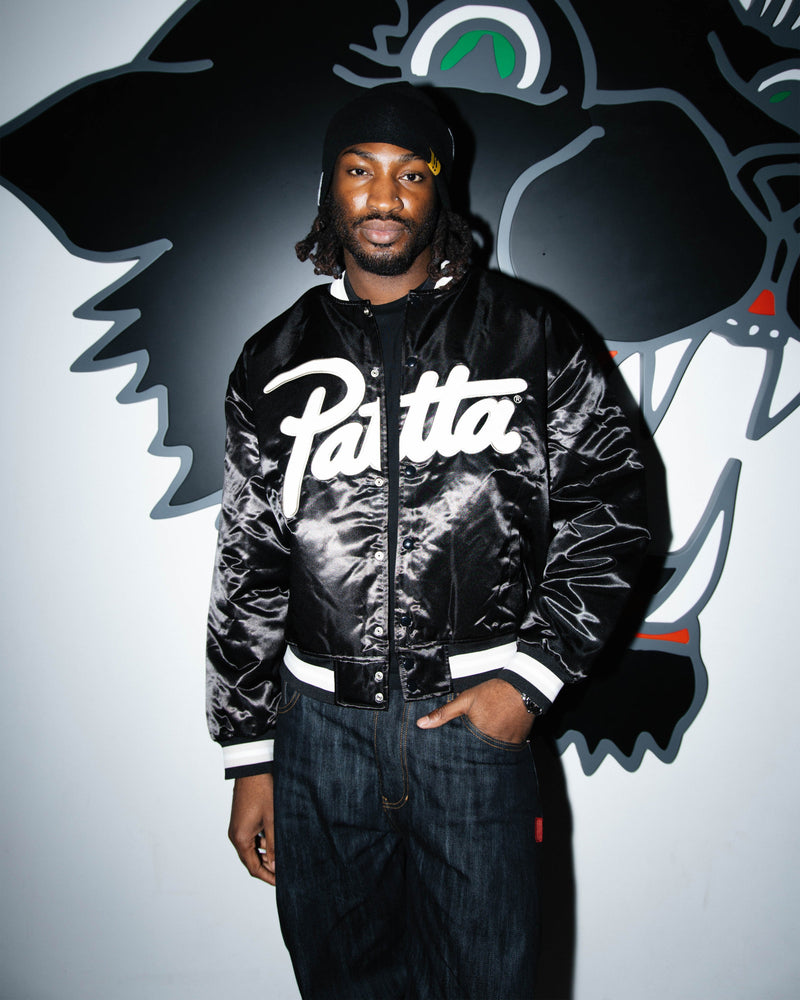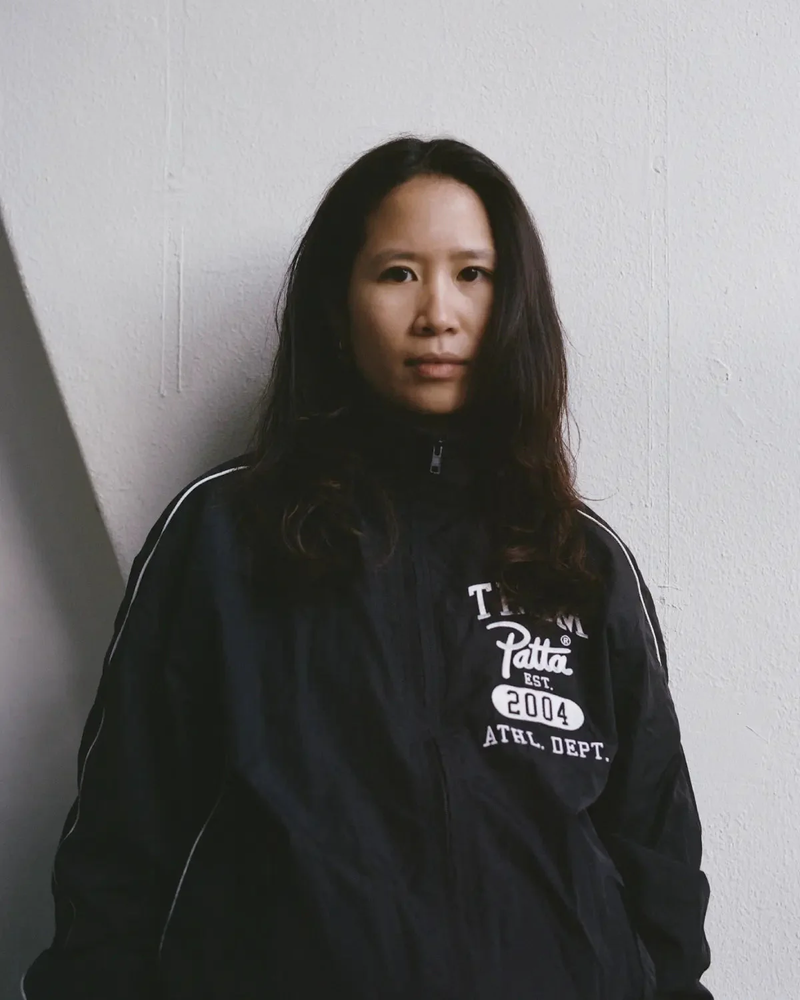
Get Familiar: TWIENA
Get Familiar: TWIENA
Interview by Passion Dzenga | Photography by Kwabena Sekyi Before the RAUM residency and festival crowds lost themselves in her rolling basslines, TWIENA was a child at a piano, doing exactly what many Asian parents hope their children will do. The real spark, however, came later. Calm by nature, she describes her emotions as mostly steady, almost flat — until music enters the room. That’s when everything intensifies, and she allows herself to genuinely feel. What started as quietly producing melancholic, melodic tracks during workshops grew into something heavier once she fell in love with techno’s four-on-the-floor hypnosis. Corona provided her with the unexpected opportunity to take it seriously: endless hours in a Rozengracht studio, playing for friends until the identity of “DJ” stopped being just an idea and became muscle memory. From there, her sound expanded — techno fused with and Latin grooves, always led by the bassline and rooted in the body. Now, as an Asian artist in European nightlife, TWIENA navigates multiple worlds simultaneously: a competitive perfectionist who refuses to be boxed in as a spokesperson, a mainstay of the queer scene using her RAUM residency to cross-pollinate communities, and a Vietnamese diasporic artist blending temple field recordings and childhood memories into tracks like “Temple Run” for BAYANG and No One Magazine. In this conversation, she traces that journey — from piano lessons and early raves to representation, roots, and why her sound, if it were a dish, would be soft-serve with colourful sprinkles. Let’s start at the beginning. What were your first experiences with music, and what was playing around the house when you were growing up?I’m Asian, so in very classic fashion I was sent to piano lessons as a kid. That was my first real introduction to playing music myself.But I only really started thinking about making music when I got into a relationship with Zoah (my current booker). Her dad is a musican and her brother use to produce music, and around that same time I started hanging out with the ALLE$ crew, who were also doing music. This was like almost 10 years ago now but I’ve always been very specific about melodies and what I like emotionally in music. My emotions are usually pretty stable – I don’t have huge highs and lows – except when it comes to music. That’s the one thing that really makes me feel something.So I started experimenting at home: playing chords, playing around with notes, letting myself be emotional in that space.You started with production first. How did that lead into DJing?Yeah, I began with production. I did some workshops and taught myself, mostly making melodic, sad music as a hobby on the side.Then it slowly shifted. I’d been going to techno parties since I was 16 or 17, and I really fell in love with that four-on-the-floor techno energy. At some point I thought, Let me try making that too. I liked it so much I realised: This is the music I actually want to put out into the world. And the best way to do that was to play it.Eycee was a big influence—he taught me how to DJ. I’d already been saying out loud, “I want to DJ,” even before I could actually do it, which is a form of manifesting. Once I started playing and got the techniques down, things moved pretty quickly.From starting out to taking music seriously as a career—it can look “fast” from the outside, but it obviously took time and courage. What helped you really commit?Corona, honestly. The pandemic wiped so much away and weirdly created space—like a reset. It felt like a new wave of opportunities, and I was lucky to be in that moment. We had a studio at the Rozengracht, this big space where someone built a big stage with a DJ booth in the studio. Because there was so much time, I could be there constantly, playing and practising.People were always coming in and out, and we’d throw little parties. I actually didn’t tell people I was a DJ—I don’t really like defining myself that way. I usually say I play music. Back then, I didn’t say it out loud at all; I would just post a lot of videos of me DJ’ing on Instagram stories. That helped grow my identity as an artist in a natural way, instead of some big, dramatic switch.You’ve spoken about being drawn to 4/4 techno. What was it about that sound that made you think, “This is where I belong”?The first time I really felt techno, it was the four-on-the-floor kick and how it puts you in a trance. The rhythm just doesn’t break—it keeps you in this zone.Over time, especially after DJing and producing more, I started to understand how broad techno actually is. Now I’m very focused on the feeling of the bassline—the rhythm and groove there. That’s become essential to me.Right now I’m drawn to basslines and grooves that overlap with Latin influences. I like making techno feel a bit more sexy and bodily, not just cold and aesthetic.You mentioned bubbling, dancehall, Afro sounds too. How did those textures enter your sound?In my teens and early twenties I was a hardcore techno head—raves, raves, raves. Then around 21–22, my world shifted; I discovered more hip-hop-adjacent sounds, and what people might call “urban,” even though I don’t love the word.I got into Afro-inspired music, reggaeton, bubbling, dancehall—that whole world. It’s completely different from techno, but it still lives in the same universe for me: music your body connects to. I loved bubbling and dancehall for dancing and partying.Now I bring those worlds together. The music that moves my body—whether it’s ravey techno or sexy bubbling—naturally slips into my sets and productions.Nightlife has historically been a very cis-het, white space, especially in Europe. As an Asian artist, did you feel represented in clubs when you started?Obviously there’s Peggy Gou—we can’t deny Peggy Gou. I wouldn’t say she’s my personal inspiration, but she’s very cool and she’s out there.But no, there weren’t many Asian artists like me around when I started. And honestly? I liked that. A lot of people say, “There was nobody I could relate to,” which is valid. But I enjoyed the fact that there weren’t many Asians—because it made me unique.Being Asian is also part of my selling point, if I’m honest. And when I came in, things were already shifting—more space for artists of colour, more focus on women, queer people. I didn’t grow up in Asian communities; my surroundings were mostly white. So I did feel culturally different, but I didn’t only see myself as “the Asian one.”What I did see was an opportunity—for myself and for the Asian community—to step into that gap, to be someone people can look at and think, “Oh, that’s possible for me too.”Does being a visible minority on line-ups come with pressure—like you have to be the best representative?Not in an “Asian representative” way, no. I feel pressure because of who I am: I’m competitive. I always want to perform at my best and, in my head, be “the best”—even though that doesn’t really make sense, because my sound is different from other people’s.So my focus is on staying unique and perfecting my own thing, not on being the spokesperson for all Asian people. I don’t want that role. I do like that I can be a role model for some, but my intention is to inspire people in general, not just one community.If you’re a perfectionist and competitive, how do you leave space for experimentation in your sets and productions?My taste changes all the time—much faster than I’d like, honestly. Every week I discover something new: a track in a club, a new artist, a promo. I’ll hear something and go, “Oh my god, this is so cool,” and it naturally sneaks into my productions or DJ sets.So I’m constantly being inspired. I’m very active in the scene—not just profiting from it. I’m on the dance floor, I listen to promos, I dig. That keeps me experimenting. It’s part of the job, but it’s also part of my personality.I integrate new influences into what I already do, and that’s how I evolve without throwing away my core sound.When you’re crate-digging, what makes you say, “This track is really me”?Right now, it’s all about the bassline. That rolling, hypnotic, dynamic bass. I know my sound quite clearly in my head—it’s very specific. I’m always searching for that particular groove and rhythm. I used to think it was all about percussion—off-beat snares, hi-hats—but now I know the actual groove lives in the bass.If the bass is static, it’s almost impossible to create the feeling I want just with percussion. The kick roots the track, but the movement—the part that makes you roll your hips—sits between the kick and the bassline.What’s the ideal space to experience your sound—clubs, festivals, something in between?I love both, but in different ways.Club-wise, RAUM is really my home. I can move around that space so comfortably. I’m a pack animal—I never go out alone, I’m a “wolf pack” person—but RAUM is the only place where I actually feel comfortable being alone. That says a lot.I also love a good festival. I like adventure, and festivals give you different chapters in one day. Dekmantel is my favourite—there are so many communities coming together there, and the musical curation is amazing.You’re a resident at RAUM. What has that residency opened up for you, and how does that space give you the opportunity to fully experiment with your sound?So much. Through RAUM we played Wire Festival in New York this year, for example. As a resident, I can also curate my own nights and invite artists who fit my taste.What I love most is the chance to bring sounds I love—like bubbling, dancehall, or more Latin-influenced techno—into a queer space. RAUM is a safe space, but it’s also big and flexible. You can cross-pollinate different communities there.I don’t want queer nightlife to be so exclusive that nobody else feels welcome. I want people from different backgrounds to experience a space where queer people take priority and feel safe, but everyone is invited to share the same values.Queer nightlife often swings between hard raves and glitter-pop clichés. Do you think it has to be tied to one sound, or is there room for more variety?There’s absolutely room for variety.RAUM is a great example: that crowd will twerk to techno. They appreciate bubbling and dancehall and they love techno. It’s a space where you can invite different sounds and people stay open.Queer isn’t a genre. It can be everything and anything. That’s why I love playing there—it all fits under the same umbrella when the crowd is open-minded. You’re part of the first BAYANG Various Artists compilation, and you also released on No One Magazine’s vinyl. How do these projects connect to your Vietnamese roots?BAYANG is a label by Ennio and Hamy—two Asian artists who wanted a platform to represent and inspire Asian artists and the diaspora. They asked me to be part of their first VA release, which felt very aligned with where I am right now.Earlier this year I released my first track on vinyl through No One Magazine, which highlights queer nightlife in different cities. For the issue focused on Vietnamese queer nightlife, I made a track using a sample of a monk I recorded during a very fragile time in my life.I brought that same sample and atmosphere into my Lowlands festival introduction, and again into my BAYANG track. All of it ties back to my Vietnamese roots—to temples, to memory, to past and present colliding. The last months of my music-making have been very much about heritage and looking back in order to move forward.As part of the diaspora, how important is it for you to look back in order to move forward?Very important.The past—personal, cultural, generational trauma, all of it—shapes how you move through the world. If you can pinpoint where things come from, you understand why you do what you do.So yes, you have to look back: at family history, at culture, at the things that hurt and the things that grounded you. That’s how you build a future that feels honest instead of random.You mentioned playing in Vietnam. What was that like, and how do you see the Vietnamese scene from where you are now?About three years ago I realised there was a real scene—and a queer scene—in Vietnam. Before that I honestly thought it didn’t exist, or that they were living in a completely different time.I played at Savage in Hanoi, and it was eye-opening. You can definitely be a role model there as a diaspora artist. It’s not my main focus right now, but it’s an important connection.What’s beautiful is that that Vietnamese scene somehow travels back here. There’s now a little network of people in Amsterdam who are connected to the Vietnam scene and to each other. Same in Paris, in the US—Vietnamese diaspora are finding each other worldwide. It feels like a huge spiderweb of like-minded people.One track that sums up where you are right now?Honestly, my own track on the BAYANG compilation: “Temple Run.”It’s the first time I feel like, This is really my sound—something I can’t find anywhere else because I’m the one doing it. It’s very tied to my Vietnamese roots and to the feeling of being at the temple as a kid, running around with my cousins.The name comes from the game Temple Run, but also from that sensation of moving through a temple—sacred, playful, a bit nostalgic.Is there a specific sound or element you can’t live without in your production right now?Rolling basslines, for sure. And toms—I love toms. I use a lot of round sounds. Within the wavetables, the sine waveform is definitely my kind of sound. The reason I like sine waves so much is because the sound is so clean. I really love the bleeps and the bells in my music—that clarity and roundness just feels right to me.If your sound was a dish, what would it be?It wouldn’t be heavy. I think it would be like soft-serve ice cream—the swirl kind—with colourful sprinkles. Smooth, playful, not too much, but still with a little extra on top.This December 26th, head to Tilla Tec for COLORS x Studio Strip. TWIENA will be behind the decks alongside Cinnaman, Jyoty and Anel, coming together for a night that celebrates boundary-pushing sound and shared energy on the dancefloor. A Boxing Day session worth stepping out for—don’t skip it.
